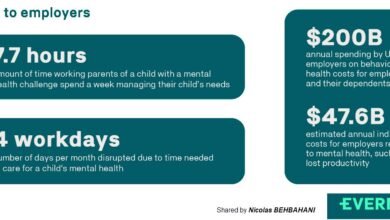
By | Charlie Fletcher
Human resources (HR) is a constantly evolving profession. The issues that employees face change from year to year and major events from around the world are constantly shifting the future of HR.
However, at its core, HR remains the same — HR teams are primarily responsible for the well-being and productivity of employees. This may look different today compared to twenty years ago, but HR departments are still responsible for efficiency and productivity in the workplace.
Fortunately, breakthroughs in technology and employee rights make it easier for HR to support a business’ employees and improve workplace productivity.
Flexible Hours and Remote Working
Employees today want greater freedom and control over their work days. This is entirely justified, as many employees benefited from remote working during the pandemic. They found it easier to strike a healthy work-life balance due to flexible working hours and the option to work remotely from home.
However, just setting employees free to work when and where they want isn’t an adequate solution. Work schedules exist for a reason and workflow will be significantly disrupted if folks are waiting for their peers to log on at an underdetermined time of day.
HR managers can provide flexible working hours and remote work by planning ahead and embracing task-based deadlines. Task-based deadlines give teams structure as well as freedom, which prevents productivity bottlenecks and makes for a more efficient workplace.
Preventing Modern Threats
Remote work is great for morale, productivity, and company culture. However, remote work does put employees and businesses at risk from modern threats that threaten to destabilize a company and grind productivity to a halt.
HR can prevent modern threats like web camera hacking by providing all employees with the most up-to-date antivirus software and training before they are allowed to work from home. This is particularly important for folks working in sensitive fields, as hackers can use webcams to eavesdrop on meetings and discover information that amounts to corporate espionage.
By staying ahead of modern cybersecurity threats, HR teams can ensure that time isn’t wasted resolving issues and employees will feel more comfortable working from home with the knowledge that they are supported by the latest safety tech.
Automation and AI
Artificial intelligence is evolving at an astounding rate and changing fields across multiple industries. HR teams can harness the power of AI by automating workflow and letting software programs complete menial tasks.
HR departments can begin workflow automation by identifying the areas of their business that would benefit from automation. Usually, these involve simple, “low-risk / high reward” tasks that are completed automatically by employees. Tasks like “out of office” emails are a good example of easily automated tasks, but each business will have its own particular jobs that can be automated.
When considering automation, getting everyone on board is key. Employees know which tasks are simple yet time-consuming and will have a host of suggestions to save themselves time and effort throughout the day. Ideally, automating will give these same employees more time to work on challenging, creative tasks and raise the standard for efficiency and productivity in the workplace.
Workplace Culture
Culture has been a buzzword amongst business leaders for decades. However, corporate culture is constantly shifting and many employees now demand more equitable inclusive workspaces that help them feel valued.
HR teams can improve workplace culture by building habits that create the right kind of environment. Habits of successful HR departments include actively listening to employees, breaking the occasional rule if it will benefit morale, and offering overwhelmingly positive feedback to staff.
But HR isn’t all sunshine and rainbows. Sometimes HR is the only department that can hold managers and leaders accountable. This is important, as transgressions that run counter to company culture will be noticed by all employees and threaten to undermine morale. This will have a knock-on effect on employees who feel let down by the business and are less likely to give their all if they feel their business fails to hold up its end of the ethical bargain.
Tech-Driven Recruiting
Effective recruiting can drive efficiency and workplace productivity to new heights. Finding the most talented, driven employees is a sure-fire way to raise the standard of the room and improve all aspects of a business’s operations.
However, recruiting today is more competitive than ever before. This is due to wider talent pools and shifting digital trends which are reshaping the hiring process. Fortunately, HR can make use of AI to sift through applications quickly and identify candidates that fit the role. HR trainers can also use new technology to improve the efficiency of their onboarding programs. This is particularly useful when training remote employees who get up to speed quicker if they are given access to digital materials sooner rather than later.
Conclusion
HR is responsible for employee welfare and plays a major role in workplace productivity, morale, and efficiency. HR teams can put the human back in HR by offering perks like remote work and flexible hours to their employees. This will improve workplace culture which, in turn, will bolster productivity and efficiency in the workplace.






